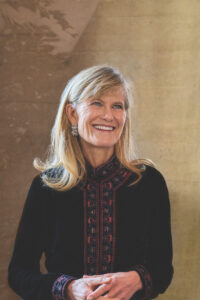How Clear is Your Vision?
Read Time
6 min read
Posted on
September 24, 2013
The essential responsibility of a leaders is to form, hold and promote a clear version. Having a vision of a better future is both noble and powerful.
Virtually all that we have and enjoy that is worthwhile is the result of someone’s vision.
Great vision, world changing vision, focuses on one thing…creating new value. By that I don’t mean economic value. Creating value for shareholders or increasing your own net worth is a means, not an end. Making money is like food. It is necessary for survival because without it we starve. But being solely focused on making money is like centering your life on how much food you can eat…it will make you sick. The kind of value-vision I’m talking about is the seven core ways people’s lives get better. WHen I am helping people develop their vision, I start with a question like this:
How will you make people…
- healthier?
- happier?
- smarter?
- safer?
- more socially connected?
- economically secure?
- experience deeper meaning?
While there are other forms of value creation, there seven seem to get people thinking about creating value more than just harvesting it.
Notice that big vision is driven by what you can do for other people rather than tricking them into doing something for you.
Lately, the news has been full of stories that illuminate failures of no vision. For instance, Microsoft finally threw their very bright and unimaginative CEO Steve Ballmer overboard. For years, Microsoft focused its mighty effort on harvesting the value of their Office software monopoly. The software itself has not materially improved in six or seven years. In fact, instead of making our lives easier, Office software has become bloated, clunkier and harder to use.
Meanwhile Microsoft has dabbled in things like Xbox, Bing, and MSN all of which are different but not better products than their competitors. With all the billions that Microsoft has and with their unique access to tens of millions of desktops around the world, you would think they could’ve come up with something that would truly make our lives better. But no, just a series of worse versions of old products.
There’s no doubt they could have done something big, like revolutionize worldwide education, which is the largest single economic enterprise in the world.
After all, Microsoft has armies of very bright, well-meaning people. But without big vision, there is simply nothing. An now it appears that all the helium has gone out of Apple’s balloon. I truly hope Steve Jobs is on to better and bigger things. If he can see what is going on with his old company, he must be averting his eyes.
With nearly $150 billion in the bank, you think Apple could come up with something better than a new phone that is clearly worse than Samsung’s old one. It appears that the great and bold creators have been muzzled while harvesters are busy at work in the halls of Apple. With its oceans of goodwill, ability to attract genius-class talent and permission to be wildly creative, you think Apple would pursue the vision that would make us healthier, happier, smarter, safer, more connected, and more creative all wrapped in a “cloud” of meaning.
Instead we get a cheaper iPhone in pink…Awesome. And finally we come to Syria. Our leaders have had no big vision for a relationship with the Middle East for 50 years. Our interest in that region has been solely defined by extracting oil and protecting Israel. I am not so idealistic that I do not believe those goals are necessary. Yet, they’re simply not enough.
When either people or countries act only in their self-interest, they are neither loved nor trusted.
Of course we need to do what’s necessary to stop the use of chemical weapons. But that’s not big vision. Big vision begins with how we might help the millions of Syrian refugees now living in Jordan and Turkey live a decent life. Perhaps if we spend our time and some of our enormous defense budget helping these suffering masses become healthier, happier, smarter and safer, they might feel more connected to us.
Our vision in the Middle East needs to focus on the younger and future generations who are much more likely to adopt the values of our Bill of Rights as they integrate them into their own traditions. General Patraeus became successful at stopping the civil war we triggered in Iraq in large part by creating trust between us and the warring factions driven by the values of tolerance and fairness and the vision of a better future.
Of course we left and it’s a mess again. The Middle East will not suddenly become a great place to live by liberating it militarily or manipulating it politically. The only investment that will ever payoff is the investment in ideas and ideals that actually create healthier, happier people. This will not be easy or simple or fast. It may take 50 years or two generations for universal human rights to be effectively embraced.
But if we don’t start now, where will be when every country has weapons of mass destruction because technology has made them so easy to build?
While it’s easy to take potshots at big companies and inept leaders, it’s harder to be self-critical. I frequently struggle with my own big vision as I begin what is likely to be the last lap of my race of life. While I many not have the assets of Microsoft of Apple or the responsibilities of creating peace, I have some role to play in my world I seem to wrestle daily with how to best invest my time in ways that might make others healthier, happier, smarter, more loved and more loving.
I am struck with how difficult it is to think in a big way without acting in small ways. My wife understands this far better than me. She is a hospice volunteer and a few nights ago we visited a 90-year-old bed-ridden woman in a clean but modest nursing home. Debbie simply fed her, brushed her hair and asked her about her life when she was a young mother.
In those few minutes of creating value for another human being, I experienced how a personal big vision changes the world.
There is something infinite in the infinitesimal. I believe we all need a big vision…a vision for creating value for others right now, right where we are.
Overview
The essential responsibility of a leaders is to form, hold and promote a clear version. Having a vision of a better future is both noble and powerful. Virtually all that we have and enjoy that is worthwhile is the result of someone’s vision. Great vision, world changing vision, focuses on one thing…creating new value. By […]
AI-Generated Overview.






